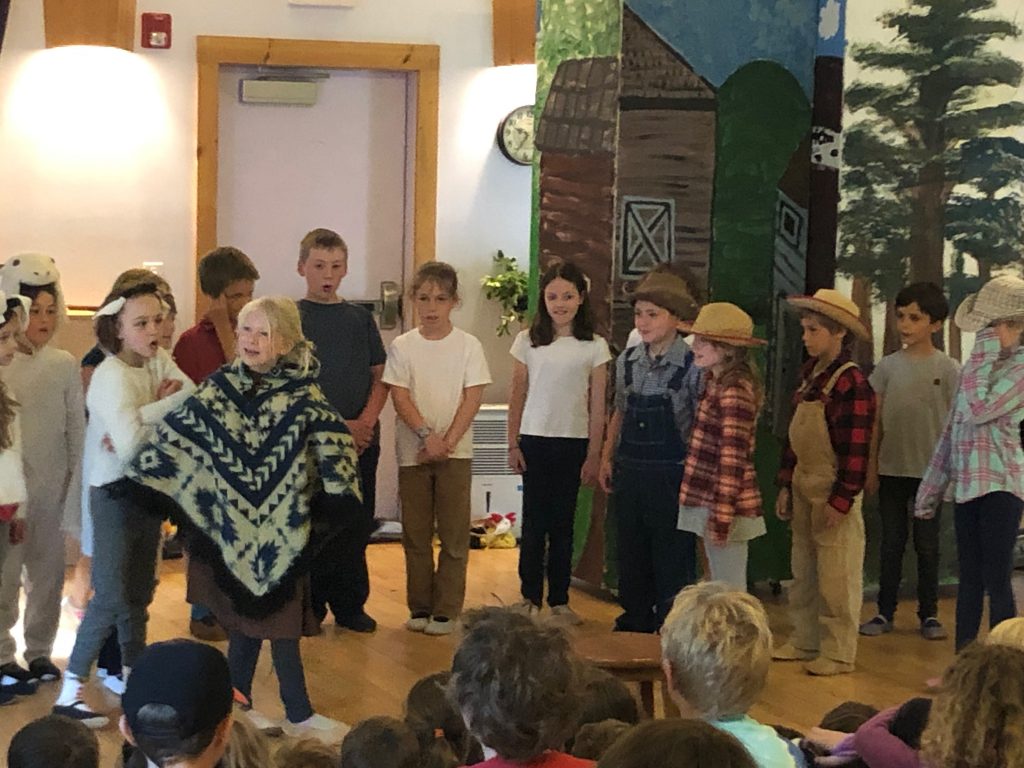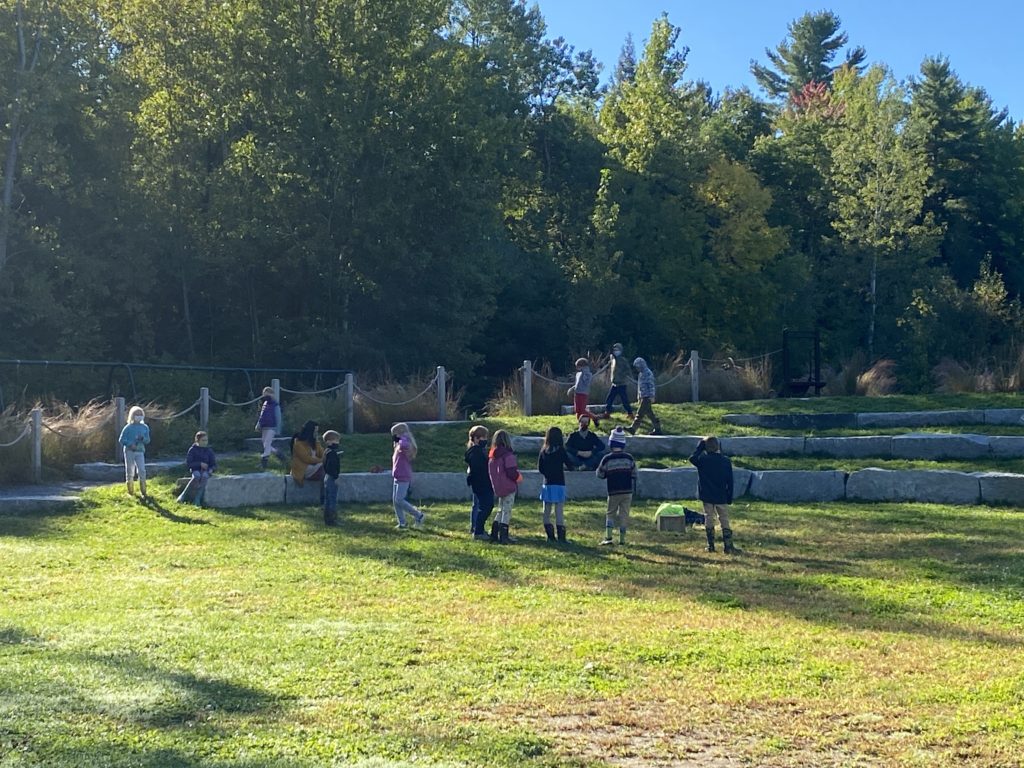
The second grade is beginning their year with a play called Li Chi and the Dragon. Gathered around in the amphitheater, the students are fully engrossed in the moment, rehearsing their lines and singing so beautifully together.

In grades one to eight, each class produces a play. The plays are carefully chosen to align with the subject matter of their curriculum, and also to address social dynamics in the class as well. Our former teacher Colleen Culhane reflects on her many years of experience producing plays for first through eighth grades, to give a window into the depth of experience the dramatic arts can offer:
Working with our curriculum through theater arts gives students a unique opportunity to ‘live into’ the material, practice the art of acting, build confidence to perform and speak in front of an audience, and to see their classmates in a new way. Teachers carefully select plays that matche the dynamic of the group of students—it’s not always an easy choice!
Then comes the casting. There is often a reason for giving a certain child a certain part. Sometimes it is obvious, but other times, the reason becomes clear later, after reflecting on the experience and observing what developed through production. I often have a feeling, which stems from my close relationship with the students as individuals, and the class as a whole. In my choices, I also must consider the course of the eight-year cycle. I want all students to have experiences of being up front sometimes, and also taking more supportive roles other times.
Interestingly, with every play, there is almost always at least one child who experiences a feeling of disappointment at first. Sometimes that is actually part of an important learning experience for a child. Often times that disappointment dissipates and transforms after moving through the process, and the child ends up feeling grateful and proud of his or her contribution to the group effort.
Through the years the students learn the craft of theater. They learn how to act, manage costumes, set, props, music, choreography and anything else that is incorporated into a play. I like the students to be as independent as possible so that they really feel that they have accomplished something together. In our eighth grade play last year one particular student took up the choreography, set design, costume design, and programs almost completely on her own. Working with her was like working with a partner – she was that capable. She had built up the skills, capacities, confidence, and enthusiasm to take on the work and do it well.
On many occasions, I have witnessed a transformation occur in a child through the experience of working on a class play. Sometimes it is in building strength and confidence, but other times it is more mysterious—as if a cathartic experience has allowed him or her to pass through an important stage of development, or overcome a challenge or blockage. Classes always feel more bonded and appreciative of one another after completing a class play.
Another wonderful outcome that I like to highlight for the students is how our performances are essentially a gift to the audience. The work we do brings joy to others. Bringing attention to the service aspect of performance helps lessen the pressure of self-consciousness.
It has been a pleasure and a privilege to shepherd children through this experience so many times. With each play, I have come away with an overwhelming feeling of pride for what these young ones can do.

